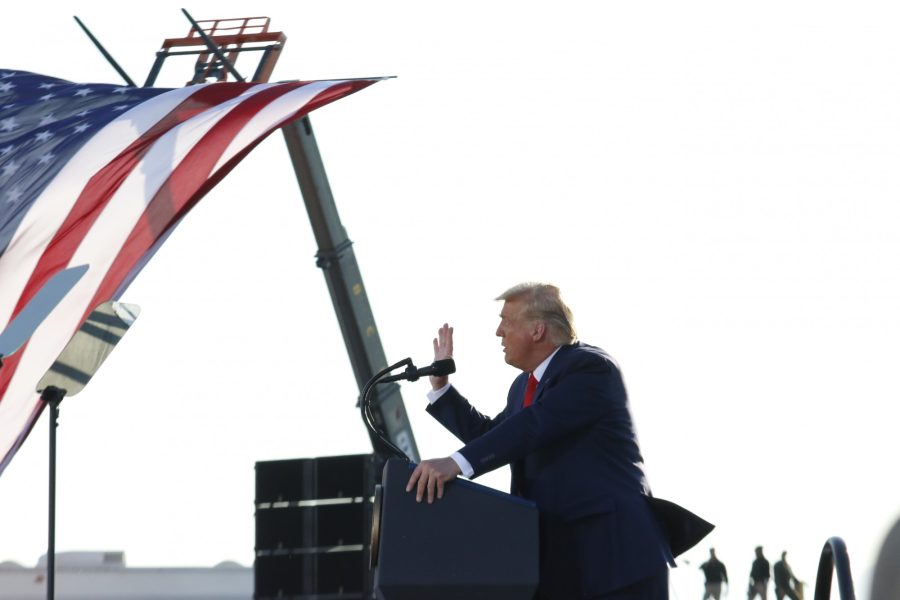Compared to previous elections where people got their information from reputable news sources, the new way people are gaining a better insight into the election is through social media. The use of social media by both campaigns during this time has changed the political landscape. In their social media campaigns on Twitter and Instagram, Joe Biden reached a total of 29.6 million followers and Donald Trump reached a total of 113 million followers. With a magnitude this large, it is no surprise that social media had a great impact on young voters and the election as a whole.
The polarization of politics on social media does not allow for information from both sides to present itself equally. Given a person’s feed is solely based on who they follow, the information a person receives tends to be very one-sided. “Filter bubbles” describe this phenomenon, where a person only receives information they already agree with. Due to the widespread use of social media and this bubble, people often forget there are two sides and become increasingly oblivious to policies and news stories that show the opposing side in a good light. This can allow for people’s beliefs to become stagnant and never-changing, severely damaging the constantly developing world and political climate we are currently in.
RELATED: Election 2020: A look at the unprecedented wave of violent poll worker intimidation
This filter bubble also can create a very strong divide between opposing sides, leading to an immense amount of tension in politics. By creating a shortage of empathy for people with different views through a lack of diversity on feeds, a person can become very hateful to those who do not agree with them.
Another way that social media can affect politics is through the spread of misinformation. The fear of a mass spread of misinformation started to present itself as an issue as we got further and further into the election. After the news that Biden has received the title of president-elect, President Trump took to Twitter to say, “I WON THIS ELECTION BY A LOT.” He also tweeted about the “fraud” occurring when counting votes and threatened legal action in many tweets. The lies President Trump is telling the public via social media is alarming and can be extremely damaging to the trust that people place in elected officials. Trump already holds a lot of power given the massive following he has on social media, and the lies he is spreading on social media is a deception to the American people.
RELATED: OPINION: Hunter Biden’s alleged sex tape: Who cares?
Many sites, including Twitter, were proactive in stopping the mass spread of misinformation with warnings that showed up when a purposely deceitful tweet was being sent. This warning proved to be very successful in stopping the spread of misinformation, but there is only so much that these sites can do. The massive amount of information that is being posted during the time of an election can make it extremely difficult for a company to combat every false piece of information that is posted. Pinterest attempted to combat all posts that mentioned the false claim that the use of Sharpies in Arizona disqualified a ballot. While they attempted to block all information by flagging key terms, some posts made their way through the cracks, and the issue became widespread.
Social media has been given the ability to create divides and spread lies through the constant use and obsession over new platforms. My advice is to turn to reputable news sources and fact check every piece of information that you read online to ensure that this issue does not have a greater effect on the political climate of today.
Follow Payton Toomey on Twitter

Payton Toomey is a sophomore majoring in journalism and information sciences and eSociety. She loves to cook and golf in her free time.









